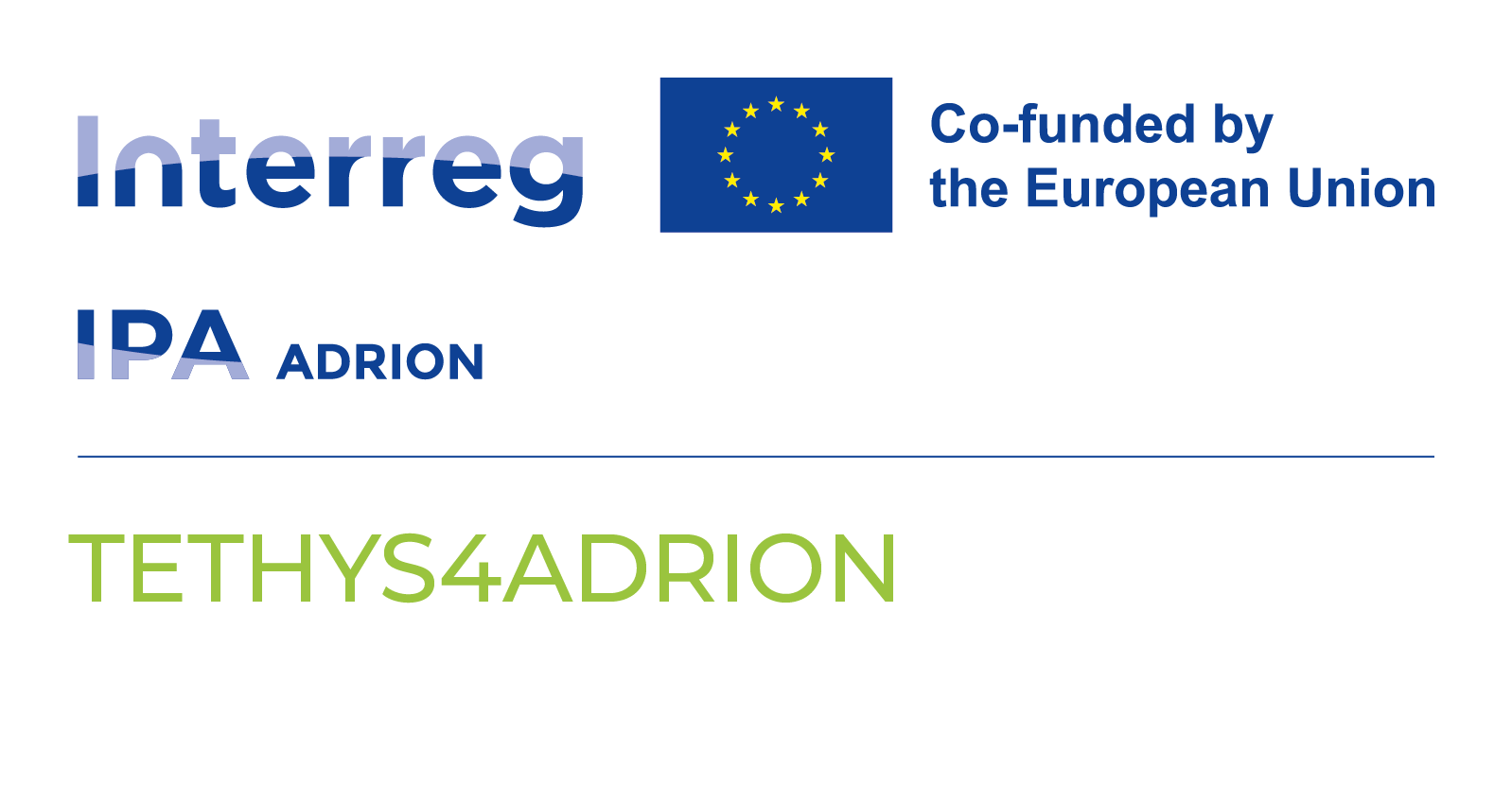Plastic pollution remains one of the most pressing environmental challenges in the Mediterranean, particularly in the Adriatic-Ionian region, which has been identified as a hotspot for marine plastic pollution. With rivers acting as the main pathways for plastic from land to sea, cross-border cooperation is essential to address this growing threat.
Launched in September 2024, the TETHYS4ADRION project embarks on a three-year-long mission to tackle this challenge head-on, delivering a comprehensive strategy to reduce riverine litter and protect freshwater and marine biodiversity.
MIO-ECSDE plays a pivotal role in the project, spearheading efforts to prevent and reduce riverine litter inputs, and restore riverine ecosystems affected by plastic pollution. Additionally, it leads the project’s participatory science interventions across five pilot project rivers, empowering local communities to take up action. TETHYS4ADRION builds on the strong cooperation foundation of the IPA Adriatic DeFishGear project, while also leveraging the impactful results of several other plastic pollution initiatives in which MIO-ECSDE has been actively engaged. These include the ENI CBC Plastic Busters CAP, Interreg Med Plastic Busters MPAs, EU-funded WES program, and more.

- Level of completion 15%
The overarching aim of the TETHYS4ADRION project is to investigate the role of rivers in contributing to marine plastic pollution in the Adriatic-Ionian region and to develop and deploy mitigation strategies aimed at addressing riverine litter inputs.
Ultimately, the project will contribute to minimising the detrimental impact of riverine litter on the marine environment and biodiversity of the ADRION region by fostering cross-border cooperation, promoting multi-stakeholder dialogue and implementing multi-level actions. By building new knowledge and establishing a community of experts in the ADRION region, the project will pave the way for the adoption of a comprehensive and coordinated approach toward cleaner and healthier river ecosystems.
The project’s main lines of action are:
- Facilitating the implementation of harmonised riverine litter monitoring in the ADRION countries by adopting novel and cutting-edge methodologies and conducting coordinated pilot monitoring on selected rivers.
- Testing and upscaling solutions that prevent and mitigate riverine litter pollution and restore degraded freshwater habitats from plastic pollution via targeted environmentally-sound actions.
- Establishing a comprehensive policy framework and groundwork for developing a sustainable and effective plan to manage and reduce riverine litter in the Adriatic-Ionian region.
The main project results and outputs include:
- Jointly adopted Guidelines for riverine litter monitoring in the Adriatic-Ionian region. A robust monitoring network for collecting riverine litter data will be developed and will employ a harmonised approach to monitor and assess riverine litter in five key pilot river areas: Alfeios (Greece), Buna-Bojana (Albania, Montenegro), Isonzo (Slovenia), Neretva (Croatia, Bosnia and Herzegovina) and Reno (Italy).
- A Blueprint on how to operationalise best practice solutions to address riverine plastic litter. The blueprint will outline the operational steps for implementing effective solutions to tackle the issue of riverine plastic litter. It will feature a carefully curated selection of best practice solutions that have been collaboratively chosen, tested, and validated by all stakeholders involved in the five pilot river areas. These solutions are designed to prevent and reduce plastic pollution in rivers while simultaneously restoring their health and integrity.
- A Regional Roadmap towards zero plastics released at sea in the Adriatic-Ionian region. The Roadmap will serve as a strategic plan tailored for local, national, and regional decision-makers and policy-makers, offering actionable insights to reduce riverine litter inputs. Through a collaborative effort, experts from diverse backgrounds across all countries within the region will actively participate in crafting this roadmap, ensuring comprehensive and inclusive solutions.
- A Regional Group of stakeholders committed to eliminating riverine litter inputs. In order to solidify and amplify the project impact and collective momentum, a network of regional stakeholders committed to eliminating riverine litter inputs will be created. The network will involve stakeholders from the ADRION region (and beyond) united in addressing the issue of litter entering waterways. These stakeholders typically include government agencies, NGOs, academic institutions, industry representatives and local communities.
-
Coordinator
- National Institute of Chemistry – Slovenia
Partners
- Institute of Oceanography and Fisheries – Croatia
- University of Tirana – Albania
- Italian Institute for Environmental Protection and Research (ISPRA) – Italy
- Mediterranean Information Office for Environment, Culture and Sustainable Development (MIO-ECSDE) – Greece
- Hellenic Center for Marine Research (HCMR) – Greece
- Institute of Marine Biology, University of Montenegro – Montenegro
- Water Institute of the Republic of Slovenia – Slovenia
- City of Metković – Croatia
- City of Čapljina – Bosnia and Herzegovina
Title: Enhancing Cross-Border Cooperation for Riverine Plastic Litter Reduction in the Adriatic and Ionian (TETHYS4ADRION)
Funding instrument: Interreg IPA ADRION
Program priority: Supporting a greener and climate-resistant Adriatic-Ionian region
Specific objective: Support for environmental preservation and protection in the Adriatic-Ionian area (SO2.3)
Project duration: 1 September 2024 – 30 August 2027 (36 months)
Project budget: 1.690.192,10 €
Project website: https://tethys4adrion.interreg-ipa-adrion.eu
For more info: Thomais Vlachogianni, TETHYS4ADRION WP2 Leader, vlachogianni@mio-ecsde.org